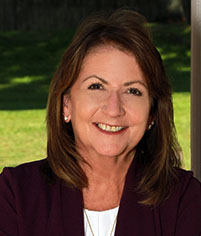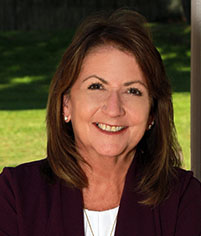Capitol Corner
Minimum Standards for Return Preparers

Ten years ago this December, IRS Commissioner Doug Shulman announced the creation of a program to regulate paid tax return preparers. After years of pushing and advocating, IRS had finally picked up the ball and scored a touchdown. It was a long, hard-fought victory for NAEA and other Circular 230 groups. And the Loving case was an equally bitter defeat. Although sometimes difficult, anniversaries, such as the 10-year anniversary of the doomed Registered Tax Return Preparer Program (RTRP), are opportunities to look back and to look ahead. Looking back on the past ten years of advocacy on this issue, what have we learned that can help us succeed in the future? What would success look like now and in the future?
For many years, IRS leadership was less than enthusiastic, if not opposed, to regulating tax return preparers who were not already covered under Circular 230. Yet consumer groups and tax practitioners, such as NAEA, continued to raise the alarm about the negative impact of unregulated return preparers with the IRS. (See the NAEA advocacy timeline.)
There had been some victories, such as when Nina Olson, the National Taxpayer Advocate, first publicly supported the need for return preparer regulation in her 2002 Annual Report to Congress. In addition to the numerous times NAEA representatives spoke before the IRS Oversight Board, NAEA also supported a legislative solution. NAEA testified before both the House Ways and Means and Senate Finance Committees over the years, hoping congressional pressure would positively influence IRS to take the necessary steps to address the problem.
Commissioner Shulman’s June 2009 announcement that IRS was inviting all interested parties to consult with the IRS about if, and how, a program for return preparer regulation appeared to be the victory for which NAEA had worked so hard. One of NAEA’s main requests of IRS officials was to address this issue in an open, collaborative way that drew upon the knowledge and experience of outside groups. Just getting the IRS to be more public in its deliberations was an ongoing battle. Back in 2005, Frank Degen, EA, and then president-elect of NAEA, urged the IRS Oversight Board that “better upfront communications” on this and other matters impacting enrolled agents would lead to cheaper and more effective solutions than “attempts to respond after the fact.”
NAEA was true to its many promises to help IRS think through the myriad issues involved with bringing unregulated preparers into the fold and testified, commented, listened, and advised during the six-month public Return Preparer Review. In fact, Frank Degen, EA, represented NAEA on the first public panel held in July 2009 and lauded Commissioner Shulman for finally taking the initiative on “common sense national return preparer oversight.” Furthermore, “if we succeed…we will protect taxpayers, elevate the profession, and level the playing field for those currently subject to Circular 230. These are good goals. These are laudable goals. These are achievable goals. Let us work together towards them.”
And we did succeed, for a while. IRS created the Registered Tax Return Preparer Program and was working with NAEA and interested parties to iron out the kinks in the implementation. Then, the courts sided with two preparers who opposed IRS’s program and enjoined the IRS from enforcing the new program a few short years later in Loving v. IRS . The two “Sons of Loving” cases further restricted the IRS’s ability to regulate return preparers without some kind of congressional direction. The winds of change had stopped blowing, at least at the IRS, and it was a tough defeat for all involved.
However, this was not the end of the war. The battleground had simply moved to Congress. Fortunately, NAEA had been working with Congress on this issue for just as long as the IRS. NAEA had been fighting on both battlefronts. The courts had squarely placed the ball in Congress’ hands and now proponents of tax preparer professionalism could focus their efforts squarely on Congress but with strong IRS and Treasury support that had, for a long time, been impossible to imagine.
Convincing Congress to pass a law requires a different set of skills and strategies that an organization like NAEA is perfectly suited to advance. Primarily, NAEA members represent voters and decision-makers in Congress listen to voters. NAEA members who have participated in NAEA’s Congressional Fly-In days know this to be true and have advocated in support of minimum standards for return preparers every year since Loving v. IRS .
Interestingly, it is still hard today to find comprehensive data about the size and scope of the problem. “NAEA finds that commercial return preparers are an enigma in today’s tax practice world. We all seem to know there are problems in connection with services performed by paid preparers, but in many respects those problems are unknown and the product of anecdotal information and conjecture.” Les Shapiro, EA, JD, said this back in 2004 but even with PTINs and the voluntary Annual Filing Season Program, it is still hard to get an accurate answer to some simple questions: How many unregulated tax return preparers currently exist in the tax marketplace? Who are the really bad actors and why? The anecdotal evidence is as persuasive as ever, though. We need more of it and encourage you to think about how we can gather and share enrolled agents’ experiences with unscrupulous or incompetent tax preparers. Encourage your clients who have suffered harm because of an unethical tax preparer to help us and other taxpayers by writing to their members of Congress. Even with issues that have convincing analytical and numerical support, members of Congress want to know who they would be helping or hurting by pursuing a particular legislative fix. In fact, a good anecdote can still trump a well-reasoned spreadsheet pretty easily in Congress (one only has to look to the TCJA withholding story earlier this year to see the truth of that statement).
Opposition to giving IRS the regulatory authority to oversee paid return preparers exists and tends to be of the general anti-IRS or anti-regulation variety. Those philosophical arguments are often difficult to win, but they can be overcome with enough votes. Fortunately, recent bills to give IRS regulatory authority have been introduced and supported on a bipartisan basis and show the way to getting majority support. For example, Congressmen Jimmy Panetta (D-CA) and Ted Yoho (R-FL) introduced the most recent House version of the bill, the Taxpayer Protection and Preparer Proficiency Act. Yoho, a well-known conservative Republican, supports this effort because “(f)amilies and individuals all over the country rely on the services of paid tax preparers during tax season. As American citizens, we are required to pay our taxes and therefore should at least ensure that those who prepare our taxes are competent. However, due to a lack of minimum federal standards, many are taken advantage of by unqualified tax preparers who are looking to make a profit…”
Those are the kinds of stories NAEA members need to be gathering and communicating to Congress. Because a good anecdote can also trump a philosophical argument.
2002
December 2002 National Taxpayer Advocate, Nina Olson, proposes, for the first time, “strengthening the professionalism of those who prepare tax returns for compensation” in her annual reporti to Congress.
2004
January 2004 Les Shapiro,ii EA, JD, testifies on behalf of NAEA before the IRS Oversight Board with a recommendation that the IRS establish a task force of both IRS personnel and representatives from Circular 230 groups to discuss the unregulated commercial preparer issue. March 2004 James D. Leimbach,iiiEA, remarks before the House Ways and Means Oversight Subcommittee on various matters, including NAEA support for S. 882, Tax Administration and Good Government Act, which would require registration and regulation of return preparers.
2005
February 2005 Frank Degen,iv EA, USTCP, statement before the IRS Oversight Board again recommends that all return preparers meet some standards for practice and that any new system to do so should be in keeping with Circular 230. April 2005 Frank Degen,v EA, USTCP, testimony before Ways and Means Oversight Committee urges regulation of return preparers, among other topics. July 2005 Frank Degen,vi EA, USTCP, testimony before the Ways and Means Oversight Committee solely on the issue of return preparer regulation.
2006
February 2006 Frank Degen,vii EA, USTCP, statement before IRS Oversight Board meeting on a variety of issues, including support for S. 832, The Taxpayer Protection and Assistance Act of 2005, which would regulate return preparers. April 2006 Frank Degen,viii EA, USTCP, statement to Senate Finance Committee supporting regulation. April 2006 Frank Degen,ix EA, USTCP, written statement before House Ways and Means Oversight Subcommittee in support of regulation of return preparers.
2007
March 2007 Bob Kerr,x Senior Director of Government Relations, testimony for House Tax Gap Briefing urging regulation of return preparers could help close the tax gap. March 2007 Roger Harris,xi EA, and NAEA Government Relations Committee chair, statement before IRS Oversight Board urging regulation of return preparers as a way to reduce the tax gap. April 2007 NAEA statementxii for the record before Senate Finance Committee in support of regulation of return preparers. June 2007 Frank Degen,xiii EA, USTCP, testimony before Senate Finance Committee regarding the complexity of the alternative minimum (AMT) and urges regulation of return preparers as a way to ensure compliance with A M T.
2008
February 2008 Frank Degen,xiv EA, USTCP, presents at public IRS Oversight Board meeting on the issue of tax return preparer regulation. NAEA endorses Senator Bingaman’s bill, S. 1219, the Taxpayer Protection and Assistance Act, as “most comprehensive roadmap to addressing the problem of unregulated preparer noncompliance.”
2009
June 2009 IRS Commissioner Shulmanxv announces an expansive six-month review of tax return preparers and intent to propose by the end of the year “a comprehensive set of recommendations to help the Internal Revenue Service better leverage the tax return preparer community with the twin goals of increasing taxpayer compliance and ensuring uniform and high ethical standards of conduct for tax preparers.” July 2009 First public meeting/discussion of Shulman review. Frank Degen,xvi EA, USTCP, speaks in support of IRS efforts and urges IRS focus on competency, centralization, and adequate resources. December 2009 IRS releases “Return Preparer Review,”xvii which summarizes the IRS findings from the sixmonth industry review and proposes a new regulatory regime for mandatory registration, competency testing, and ethical standards for all paid return preparers (Registered Tax Return Preparer Program). 2020
2010
May 2010 Bob Kerrxix statement on proposed regulations for return preparer oversight program. August 2010 Michael Nelson,xx executive vice president of NAEA, speaks before IRS on the proposed regulations for the new preparer regulation regime.
2011
July 2011 Lonnie Gary,xxi EA, USTCP, chair of NAEA’s Government Relations Committee, testifies before the House Ways and Means Oversight Subcommittee about IRS program implementation, progress, and remaining concerns.
2013
January 2013 IRS enjoined from enforcing the Registered Tax Return Preparer Program by the DC District Court in Loving v. IRS,xxii specifically with regard to competence testing and continuing education requirements. In February, the court clarifies the order does not affect the requirement that all paid return preparers obtain a PTIN.
2014
February 2014 U.S. Court of Appeals for the DC Circuit rules in favor of the lower court in Loving v. IRSxxiii and finds IRS lacks the necessary authority to regulate tax return preparers. April 2014 NAEA statementxxiv for the record before Senate Finance Committee regarding the recent Loving case and urging swift congressional action to give IRS the statutory authority needed to continue with the program created by IRS. June 2014 IRS creates the Annual Filing Season Programxxv (AFSP), a voluntary program for tax return prepares who pass an annual basic competency test and complete 18 hours of continuing education each year. In exchange for participation in the program, tax preparers receive an Annual Filing Season Program record of completion, which they can display to stand out from the competition. Participants also receive inclusion in an online IRS public information database called the Directory of Federal Tax Return Preparers with Credentials and Select Qualifications, which taxpayers can use to help locate qualified tax preparers in their area. July 2014 District Court decides in Ridgely v. Lewxxvi that “ordinary refund claims” is not “practice before the IRS” and that IRS cannot regulate Ridgley’s contingent fee arrangement. October 2014 Nevada Court in Sexton v. Hawkinsxxvii enjoins IRS from preventing Sexton’s use of e-file system to file prepared returns, even though Sexton’s representation rights were previously suspended. December 2014 Davis v. IRSxxviii case is dismissed. IRS relents and allows Davis, a formerly suspended certified public accountant, to use the e-filing system to prepare returns.
- www.irs.gov/pub/tas/nta_2002_annual_rpt.pdf
- https://naea.org/advocacy/naea-congress/testimony/statement-irs-oversight-board-january-26-2004
- https://naea.org/advocacy/naea-congress/testimony/naea-statement-house-ways-and-means-oversight-sub – committee-march-30
- https://naea.org/advocacy/naea-congress/testimony/testimony-irs-oversight-board-february-1-2005
- https://naea.org/advocacy/naea-congress/testimony/testimony-house-ways-and-means-oversight-subcommit – tee-april-7-2005
- https://naea.org/advocacy/naea-congress/testimony/testimony-house-ways-and-means-oversight-subcommit – tee-july-20-2005
- https://naea.org/advocacy/naea-congress/testimony/testimony-internal-revenue-service-oversight-board-feb – ruary-8-2006
- https://naea.org/advocacy/naea-congress/testimony/testimony-internal-revenue-service-oversight-board-feb – ruary-8-2006
- https://naea.org/advocacy/naea-congress/testimony/naea-testifies-2006-filing-season-house-ways-and-means-oversight-su
- https://naea.org/advocacy/naea-congress/testimony/house-tax-gap-briefing-march-2-2007
- https://naea.org/advocacy/naea-congress/tes – timony/testimony-internal-revenue-service-over – sight-board-march-7-2007
- https://naea.org/advocacy/naea-congress/testimony/naea-comments-record-senate-finance-committee-hear – ing-april-12-2007
- https://naea.org/advocacy/naea-congress/testimony/testimony-senate-finance-committee-alternative-mini – mum-tax-amt-junex
- www.treasury.gov/IRSOB/meetings/Documents/state – ment-NAEA.pdf
- www.irs.gov/newsroom/irs-launches-tax-return-prepar – er-review-recommendations-to-improve-compliance-ex – pected-by-year-end
- https://naea.org/advocacy/naea-congress/testimony/naea-comments-irs-panel-discussion
- www.irs.gov/pub/irs-pdf/p4832.pdf
- https://en.wikipedia.org/wiki/IRS_Return_Preparer_Ini – tiative
- https://naea.org/advocacy/naea-congress/testimony/naea-testimony-irs-public-hearing-proposed-regulations
- https://naea.org/advocacy/naea-congress/testimo – ny/naea-testimony-during-irs-public-hearing-pro – posed-ptin-regulations-
- https://naea.org/advocacy/naea-congress/testimony/naea-testifies-house-ways-and-means-subcommittee-return-preparer-ov
- www.leagle.com/decision/infdco20130118d57
- www.cadc.uscourts.gov/internet/opinions.nsf/B63C3129A4FE761985257C7C00539949/$ – file/13-5061-1479431.pdfB63C3129A4FE761985257 7C00539949/$file/13-5061-1479431.pdf
- https://naea.org/advocacy/naea-congress/testimony/naea-statement-record-senate-finance-committee-hear – ing-april-8-2014
- www.irs.gov/tax-professionals/annual-filing-season-pro – gram
- https://casetext.com/case/ridgely-v-lew-1
- https://casetext.com/case/sexton-v-hawkins
- Davis v. IRS, No. 1:14-cv-00261 (N.D. Ohio 2014)



